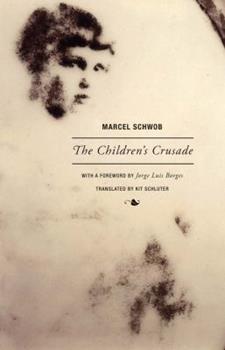The Children’s Crusade by Marcel Schwob

Besides a recommendation from a close friend, the best way to discover a new favorite book for me comes neither from a review nor a share nor a tweet–but rather from discovering a small publishing house with a great list and simply diving in. From Archipelago Books to New Directions to Europa Editions to Deep Vellum, independent publishing houses that make a commitment to publishing only high quality books find an ideal reader in those like myself. And the image of one of their logos on the spine of a book will always carry more sway for me than whatever title may be trending at the moment.
Enter Wakefield Press–the extraordinary and minuscule Cambridge, MA press that you have probably never heard of. Specialists in the obscure, the overlooked, and the odd (as well as the cheap! They’re books are never more than ten dollars or so), they are perhaps best known for having single-handedly introduced the work of Marcel Schwob to English readers. Celebrated by figures ranging from Borges to Apollinaire to Patti Smith to Roberto Bolaño, Schwob–a figurehead of Belgian Surrealism–is one of the dark angels of francophone literature; and his slim deeply poetic works are very much worth your time.
The best way to enter his shadowy world is perhaps with the 1893 novella/prose poem The Children’s Crusade–a profoundly beautiful and tragic account of the disastrous 13th century march to Jerusalem that thousands of young children voluntarily and spontaneously made from France and Germany. In its radically shifting perspectives that move from a wandering Christian priest to the pope to a leper to the children themselves, we journey with them across Europe to the Mediterranean, helplessly watching as they come to their tragic ends. A short disturbing dream of a work, this text’s haunting and highly unusual quality, as well as its extreme brevity, will result in multiple readings for anyone with a taste for Lautréamont and David Lynch.
So take a deep breath and plunge into the darkly beautiful world of Marcel Schwob and his fellow travelers at Wakefield Press.


